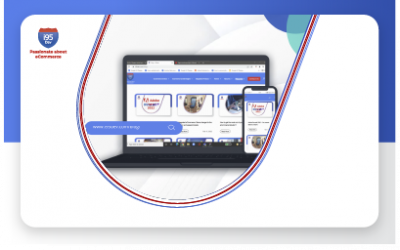A Guide to Move Your
Home Improvement Business to Ecommerce

Recently we’ve seen a high demand for merchants wanting to move their home improvement businesses to eCommerce. Not that physical stores aren’t doing them any good, but we should honestly agree that lately, there has been a dip in this industry prominently for physical stores.
Hence to help out businesses like you, we have recently come up with the HOME IMPROVEMENT SERIES that speaks about everything you need to know about the following:
And this article is a guide all about moving your home improvement business to eCommerce.
Let’s begin,
Two most important steps:
- Selecting the right eCommerce platform
- Selection of the right eCommerce solution provider
Selection 1: The right eCommerce platform
Selecting the right eCommerce platform requires strong research, be it for B2B or B2C business models. A platform that is well equipped to deliver the outcomes and objectives you have set should be the right choice for you. Merchants often go with the most popular name, with a misunderstanding that the platform is widely used and hence it will suit my business as well.
Before making the decision, you should have answers for the below:
- Which type of eCommerce platform would you like to choose?
- Traditional
- Build your own
- Open-source
- Cloud-based
- SaaS
- What is the cost to build, maintain and update? Is it feasible?
- How secure is it?
- Does it have the eCommerce features you wish to provide?
Also, the bitter truth is that there is no perfect eCommerce platform as such. It’s up to you to check if the platform can satisfy most of your business needs.
When it comes to flexibility, security, features and much more, Magento is the best platform.
You may also like our ebook: Building B2B eCommerce Store with Magento
Selection 2: The right eCommerce solution provider
The eCommerce solution provider you select to work with is even more crucial than choosing the platform. This solution provider will be your guide throughout the process.
Factors to consider while selecting the solution provider:
- Level of experience: Deep understanding of the industry and business type you deal with
- Support: Ensure 24X7 after-sales support
- Flexibility: Open for customizations and third-party integrations
- The time required to get on the floor: It also depends on the customizations, integrations, etc
Licenses
Starting your online business is beyond just having an eCommerce website; it requires the same compliance level that a physical store demands. Having all the licenses in place is always a best practice so that you don’t face unnecessary legal issues.
Below is a list of must-have business licenses and permits :
- Business license, a mandatory document as per the local jurisdiction legally
- Seller’s permit for businesses that deal with taxable goods and services
- Reseller’s permit also known as a resale certificate to avoid being taxed on the resold products twice
- Doing Business As (DBA License) required if you wish to operate with a different company name than your legally registered business name
- Sales tax license
- Occupational license depends on the type of industry you serve
- Employer Identification Number (EIN) needed to identify your business as an independent tax entity
There are some other licenses like environmental permits, professional and trade licenses, etc., you may require these depending upon the industry and the type of business you deal with. Hence, the thumb rule here is always to check with your state and local authorities to avoid legal trouble.
Logistics, delivery system, and shipping
You can either build your own logistics or tie-up with a third party. Merchants who have just stepped into the eCommerce space prefer getting the work done from a vendor. The advantage here is you just need to manage the vendor, and their team will take care of all the logistics bits.
Also, you need to build a shipping strategy and stick to it. While planning, make sure you consider the average product size and the weight you deal with. Consider the locations you wish to ship the products as logistics and infrastructure will change depending upon domestic and international locations. Make sure you have multiple shipping options like same-day delivery, next-day delivery, or timely and cost-effective delivery, as these options delight customers.
Marketing and customer engagement
Marketing efforts are the most crucial step in the whole process. Create a marketing strategy that aligns to your objectives and goals. You can do it yourself or hire a digital marketing agency and get the desired results. Inadequate marketing efforts will fade away the hard work of building an eStore and other developments.
Have a look at some great MAGENTO & i95DEV ECOMMERCE SOLUTION users: B2C and B2B businesses. Click here!
How can we help you?
We assume you must be looking to move your business to an online platform. You need not worry as i95Dev offers full-fledge services that can help you right from setting up your eCommerce platform to do the digital marketing activities for you.
Recent Blogs
22 benefits ecommerce home decor furniture businesses
22 Benefits of eCommerce for Home Décor and Furniture Businesses Author Category Share Home décor and furniture businesses are increasingly turning to eCommerce to elevate their operations...
Home Improvement Industry: 11 Key eCommerce Features Consider
Elevating Home Improvement eCommerce: 11 Must-Have Features for a Seamless Shopping Experience Author Category Share In the dynamic landscape of home improvement, furniture, and lifestyle,...
Complete Guide to Automotive eCommerce Growth, Trends, Challenges, Solutions
A Comprehensive Guide to Accelerate Your Automotive Business Growth with eCommerce Author Category Share Introduction The automotive industry has undergone a significant transformation in...





